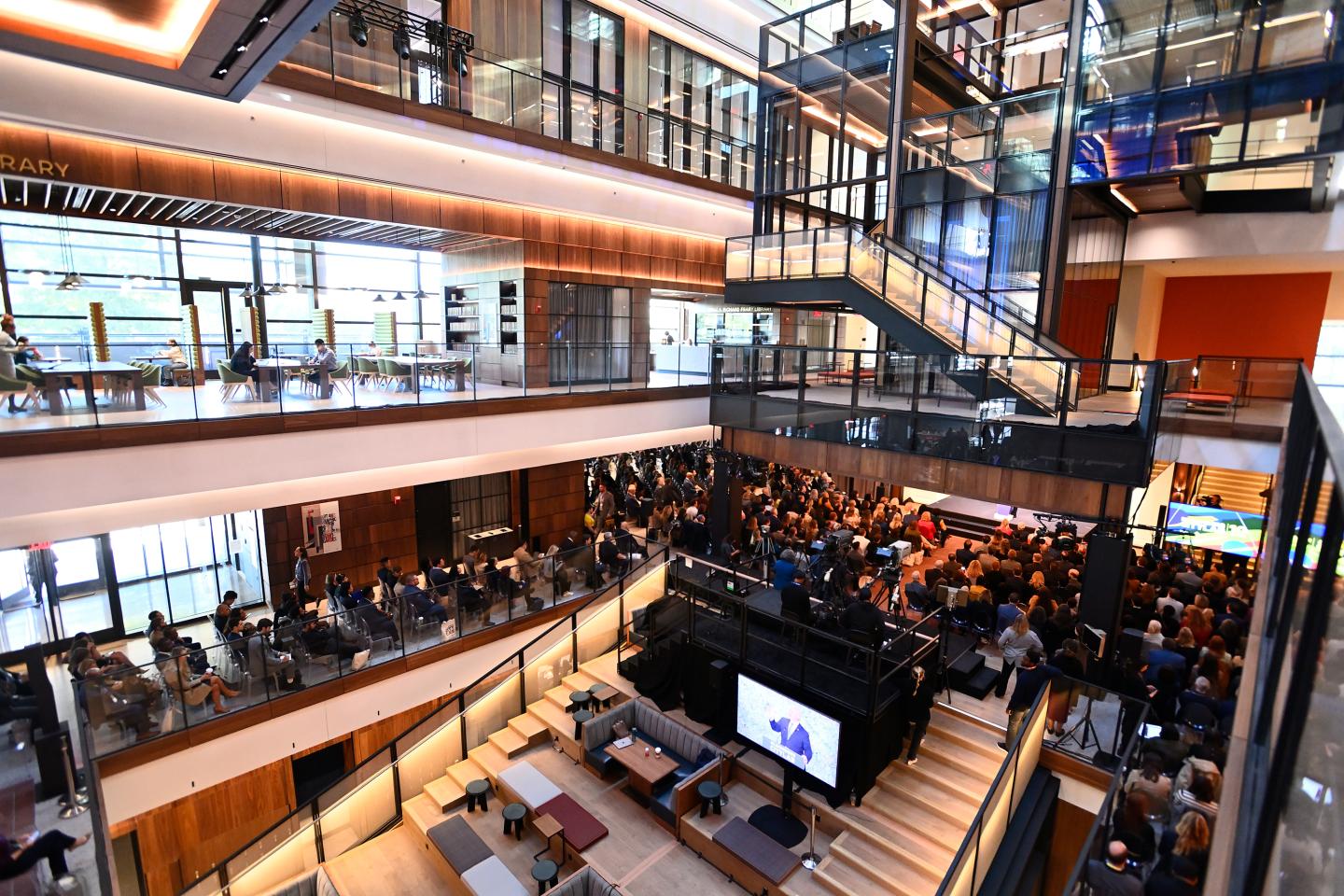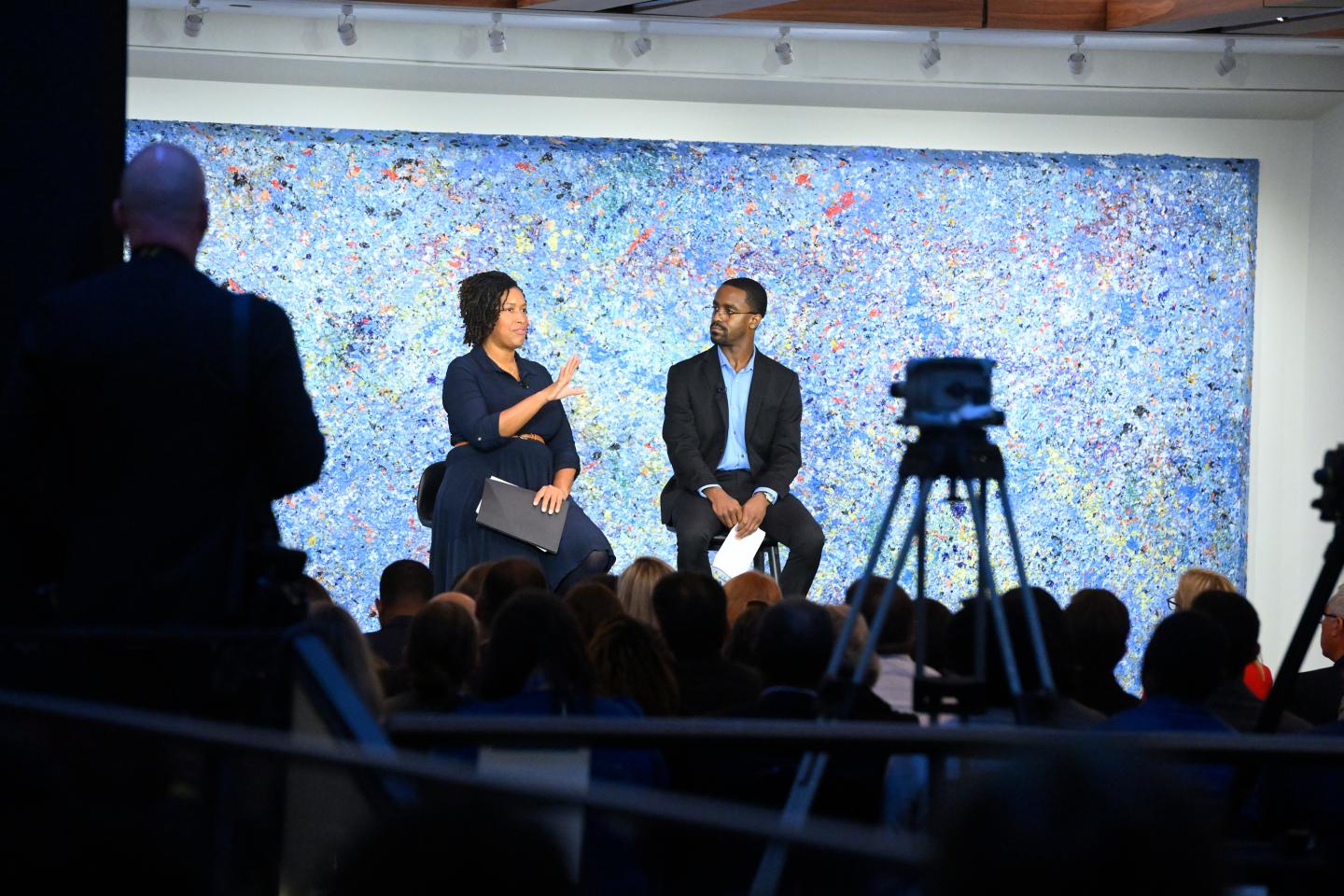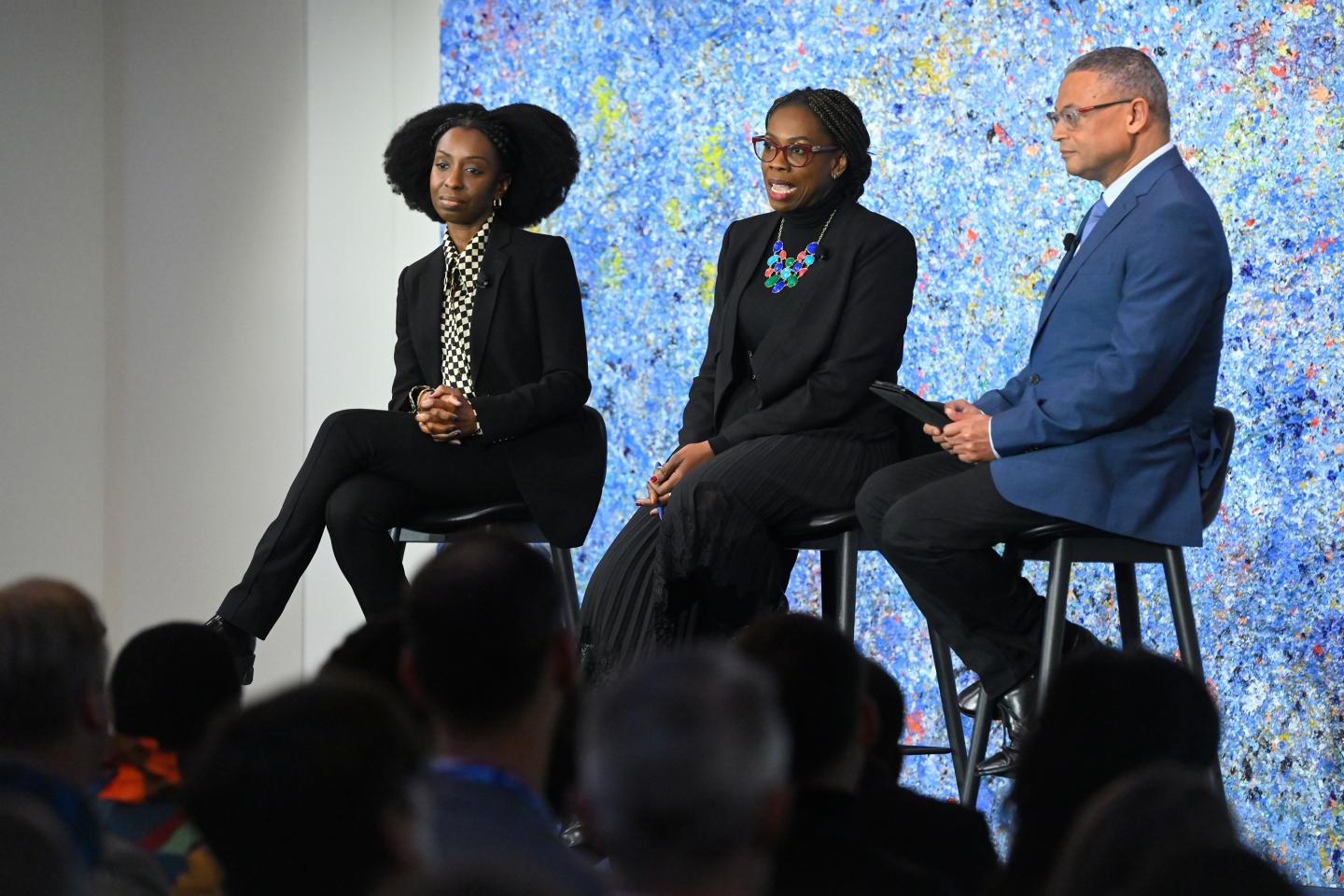One day before the dedication celebration for the new Johns Hopkins University Bloomberg Center in Washington, D.C., the building hosted a major gathering of nearly 600 mayors and urban and civic leaders from around the world as part of the 10th annual Bloomberg CityLab conference.
Also see
The event, organized by Bloomberg Philanthropies in partnership with the Aspen Institute, gives attendees an opportunity to explore new ideas and urban interventions that are being pressure-tested now and will impact the future of cities—where more than half the world's population lives. The site of Wednesday's morning plenary, the Hopkins Bloomberg Center at 555 Pennsylvania Ave., is envisioned in part as a venue for such events, briefings, and convenings that inform national, local, and global policymaking.

Image caption: The opening plenary for Bloomberg CityLab 2023 took place at the new Johns Hopkins University Bloomberg Center in Washington, D.C.
Image credit: Will Kirk / Johns Hopkins University
Speakers Wednesday morning included Washington, D.C., Mayor Muriel Bowser, who announced the creation of a new pipeline program to help graduates of two historically Black universities—Howard University and the University of the District of Columbia—launch careers in local government in the nation's capital.

Image caption: Washington, D.C., Mayor Muriel Bowser (left) was among the featured speakers during Wednesday's opening plenary session.
Image credit: Will Kirk / Johns Hopkins University
Other presenters included Maryland Gov. Wes Moore, a 2001 Johns Hopkins University graduate and the state's first Black governor, who spoke about resilient, inclusive, and equitable economic development for cities, small towns, and rural areas; and Chiedo Nwankwor, senior lecturer and vice dean for education and academic affairs at the Johns Hopkins School of Advanced International Studies and director of SAIS Women Lead. Nwankwor took part in a conversation about the past, present, and future for African cities as their populations and economies grow.

Image caption: Chiedo Nwankwor (center), senior lecturer and vice dean for education and academic affairs at the Johns Hopkins School of Advanced International Studies, participated in a discussion about the past, present, and future of African cities.
Image credit: Will Kirk / Johns Hopkins University
The morning began with remarks from former New Orleans Mayor Mitch Landrieu, now senior advisor and infrastructure coordinator at the White House, who touted the far-reaching impact of the bipartisan $1.2 trillion infrastructure bill signed in November 2021. The bill is helping rebuild roads, bridges, and rails, expand access to clean air and water, ensure every American has access to high-speed internet, and address the effects of climate change, including extreme weather and sea-level rise.
Landrieu noted that mayors and other local leaders have "proximity to reality"—they see first-hand the impact of their actions and the people affected by their decisions every day. It's a tremendous responsibility but also presents an incredible opportunity, he said.
"You will hear the president say this every time he talks—when we do things together, when we seek common ground, there is nothing that we cannot do if we make sure that we don't leave anybody behind," Landrieu said. "And we will build a country from the bottom up and the middle out that will be so strong, we never have to look over our shoulder again and think about going backwards, but only think about going forward. You know what I call that? Building a bridge to the future. And that is what this conference is all about."

Image caption: Mitch Landrieu, senior advisor and infrastructure coordinator at the White House, speaks during the opening plenary at Bloomberg CityLab 2023.
Image credit: Will Kirk / Johns Hopkins University
Bloomberg CityLab continues through Friday in Washington, D.C. Thursday's schedule includes a panel discussion on urban violence prevention that will feature Daniel Webster, professor of American health at the Johns Hopkins Bloomberg School of Public Health and distinguished research scholar at the Johns Hopkins Center for Gun Violence Solutions.
Posted in Politics+Society
Tagged urban renewal, urban planning, hopkins bloomberg center








